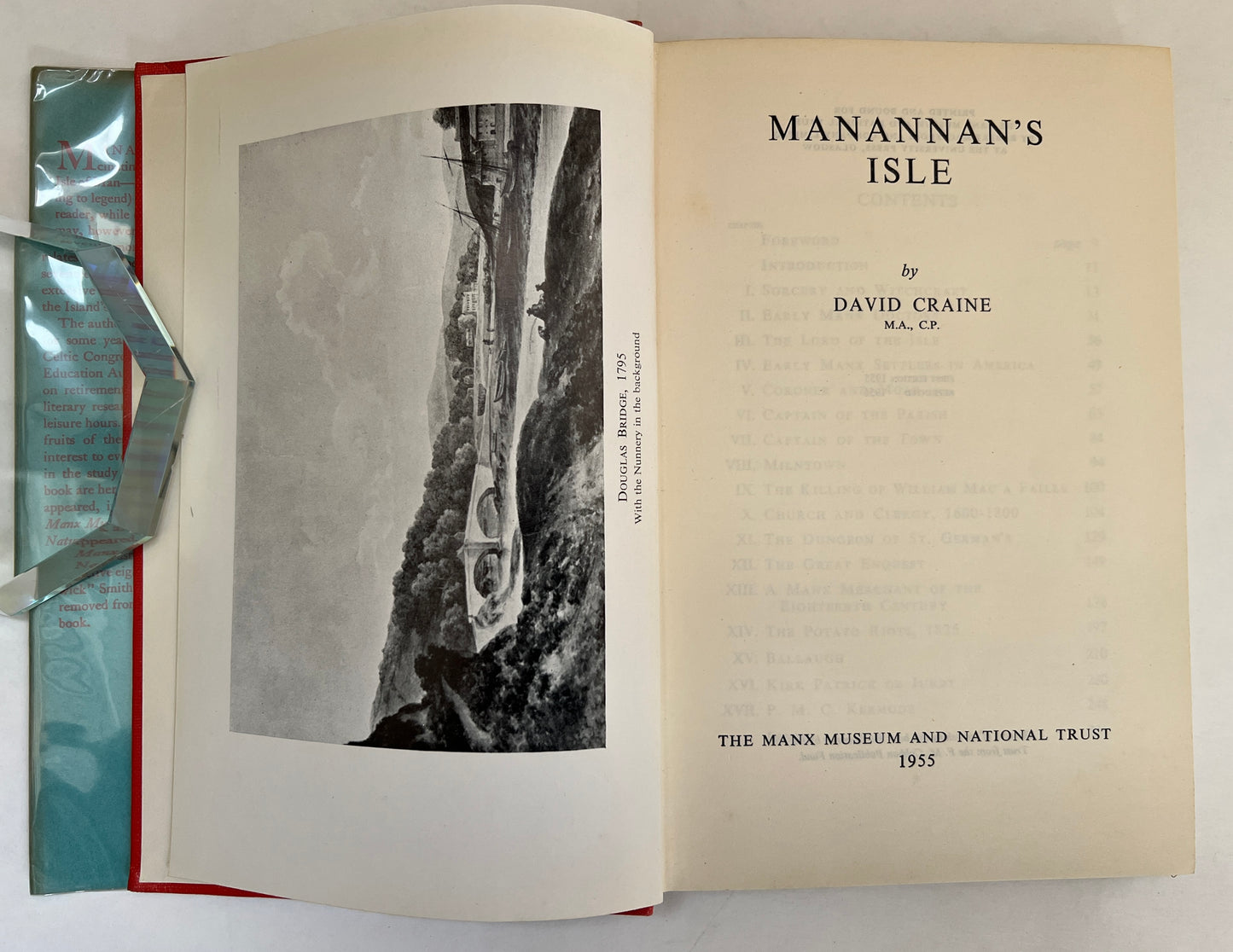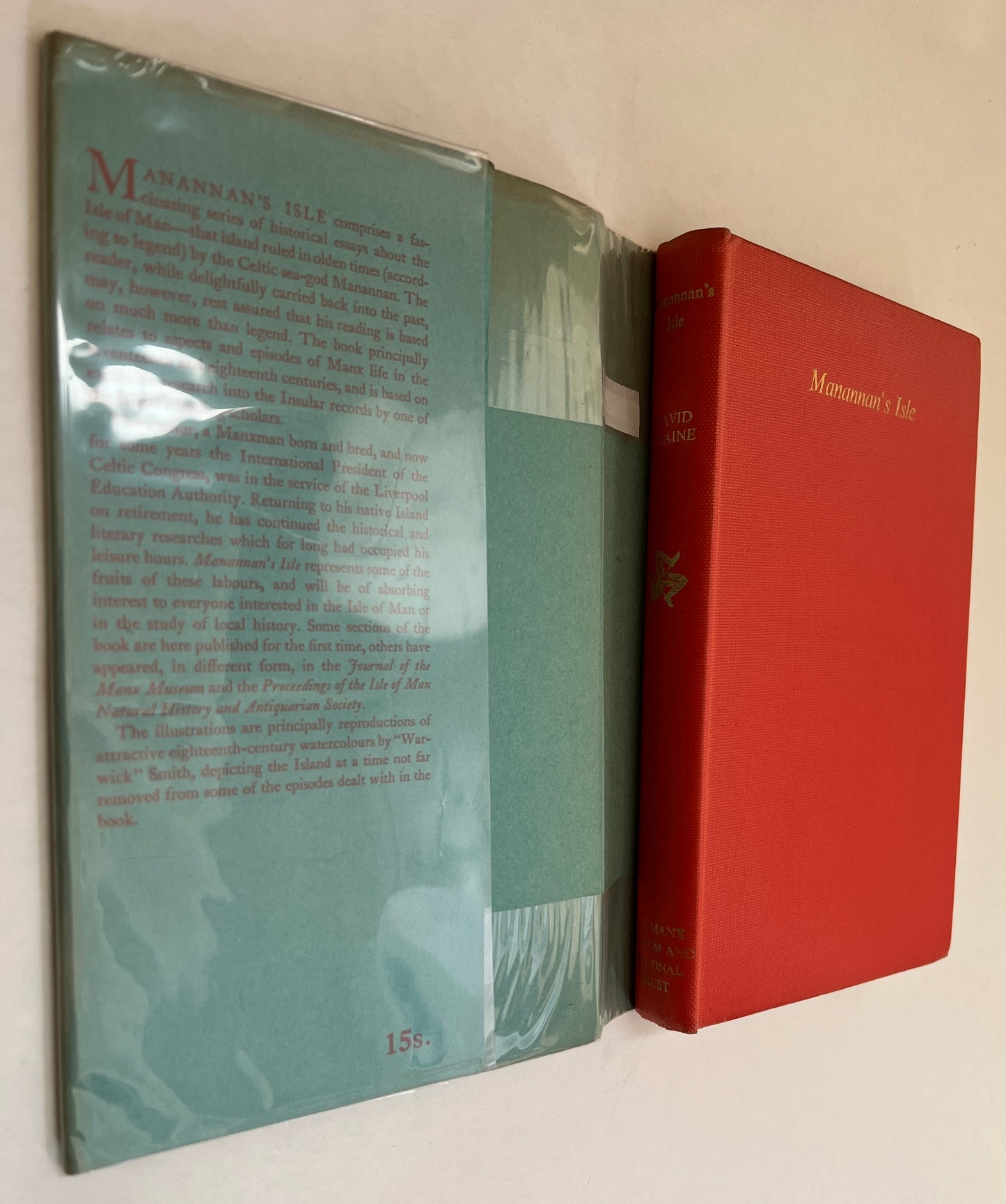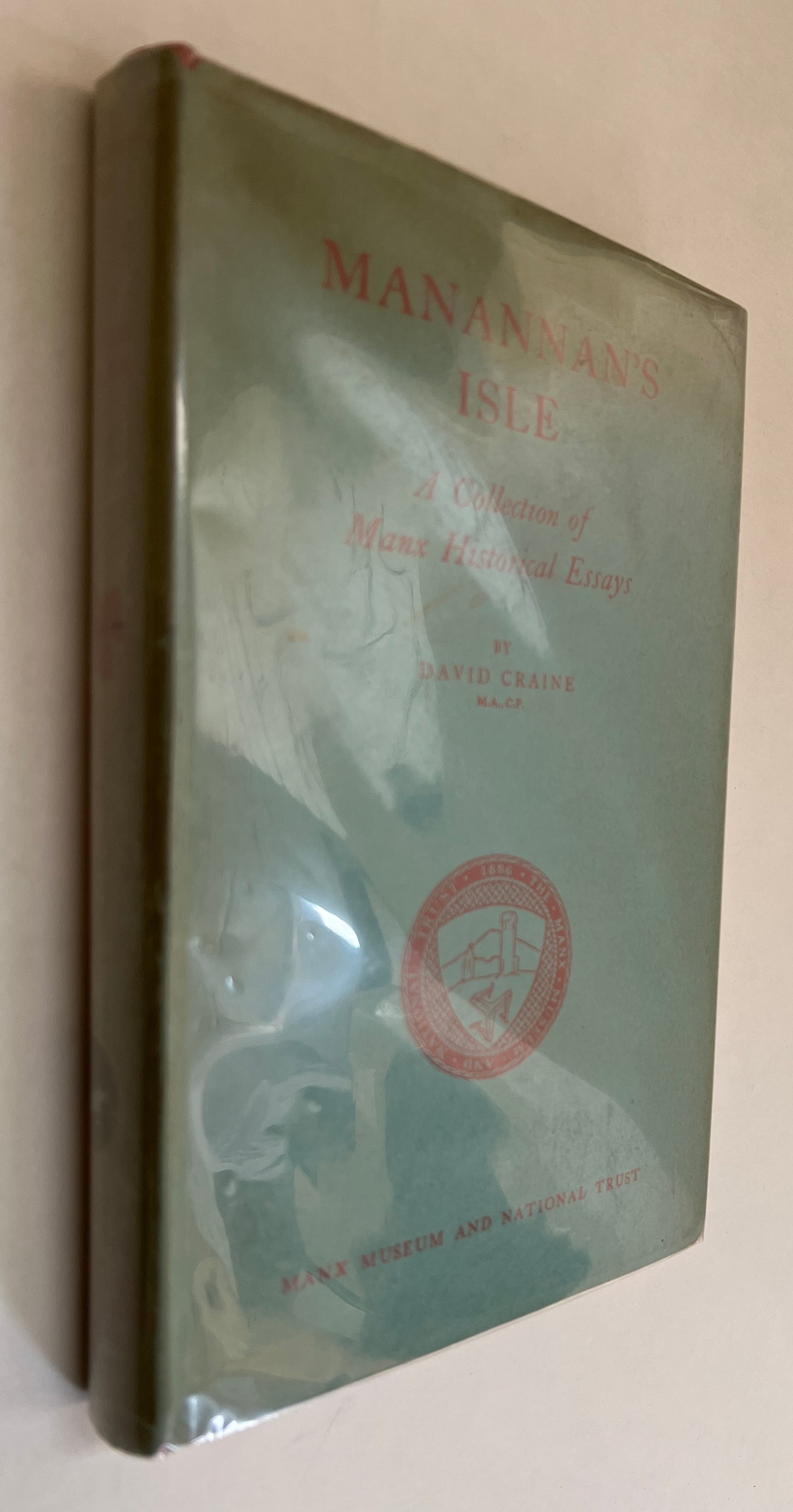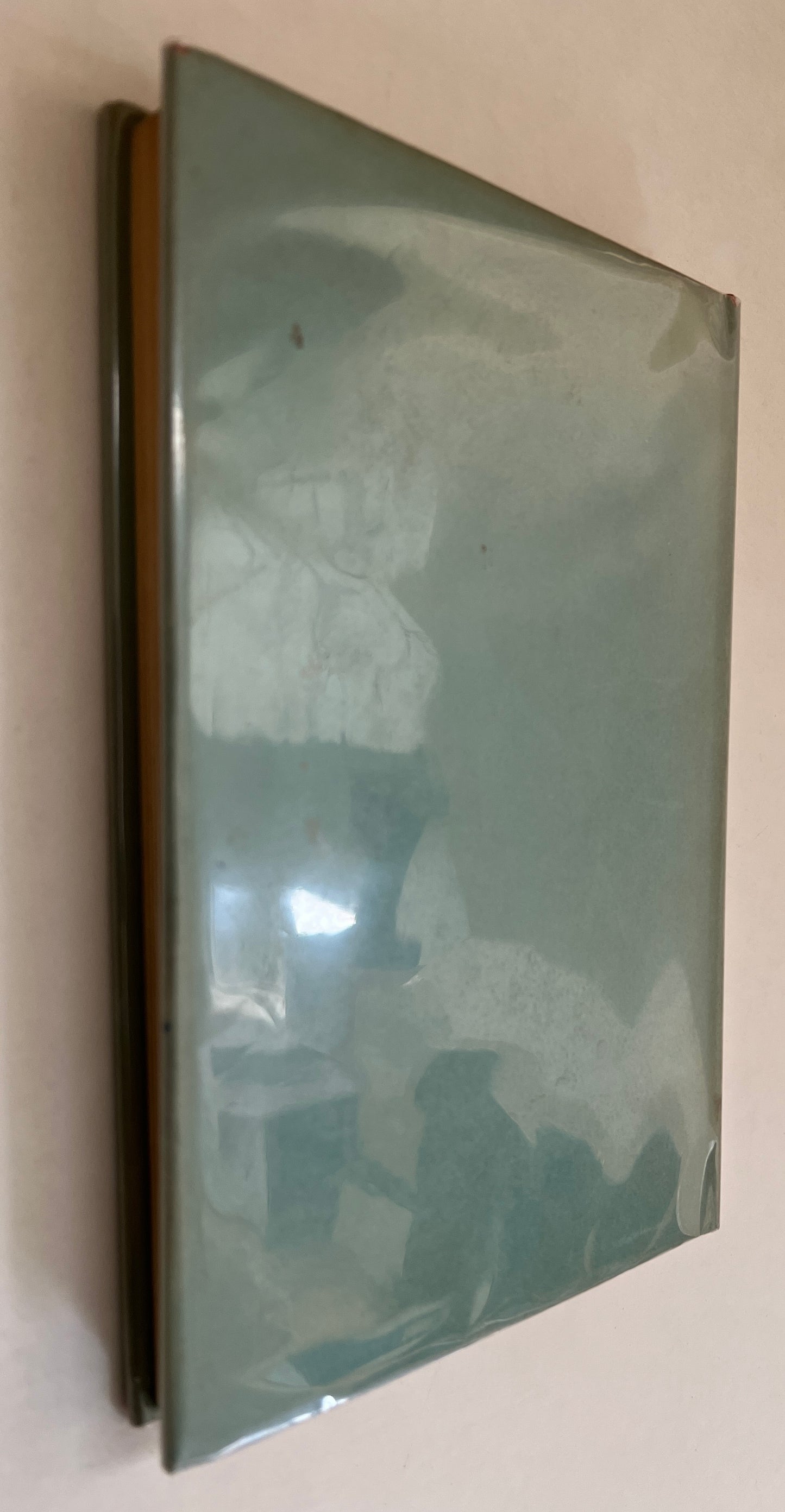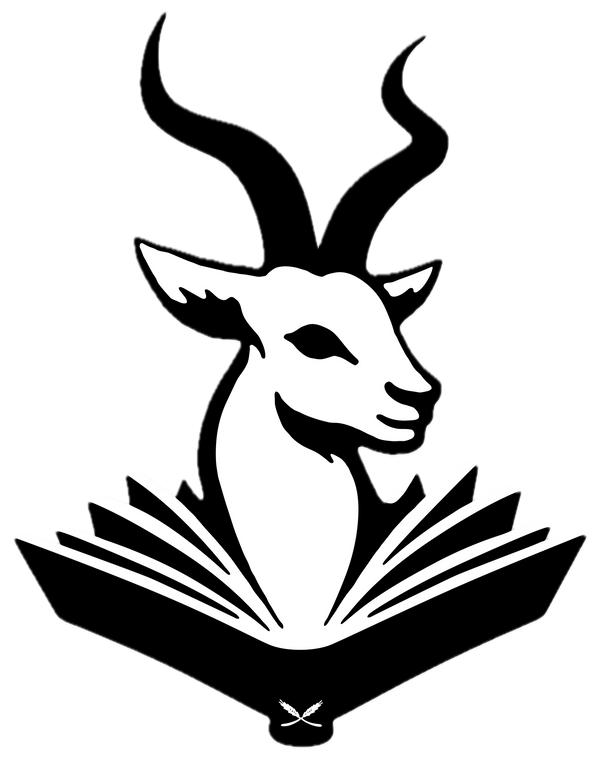Craine, David.
Manannan's Isle
Manannan's Isle
Couldn't load pickup availability
[Place of publication not identified]: Manx Museum and National Trust, 1956 (1955). "Reprinted 1956". Royal octavo in pale blue jacket and polished coral red; 255 pages, b&w plates on coated stock; illustrations 23 cm. Previous owner name and notes in pen to front free endpaper and page 100 header.; else very good(+) thus in original very good jakcet in archival mylar. Hardcover.
A handsome binding , and jacket & boards color scheme. "A collection of Manx historical essays."--Jacket. / "The Isle of Man (Manx: Mannin, also Ellan Vannin, also known as Mann), is a self-governing British Crown Dependency in the Irish Sea between Great Britain and Ireland. ... The government of the United Kingdom is responsible for the isle's military defence and represents it abroad. Humans have lived on the island since before 6500 BC. Gaelic cultural influence began in the 5th century AD, when Irish missionaries following the teaching of St. Patrick began settling the island, and the Manx language, a branch of the Goidelic languages, emerged. In 627, King Edwin of Northumbria conquered the Isle of Man along with most of Mercia. In the 9th century, Norsemen established the thalassocratic Kingdom of the Isles, which included the Isle of Man. Magnus III, King of Norway from 1093 to 1103, reigned as King of Mann and the Isles between 1099 and 1103. In 1266, King Magnus VI of Norway sold his suzerainty over Mann to King Alexander III of Scotland under the Treaty of Perth. After a period of alternating rule by the Kings of Scotland and England, the island came under the feudal lordship of the English Crown in 1399. The lordship revested in the British Crown in 1765, but the island did not become part of the 18th-century Kingdom of Great Britain, nor of its successors, the United Kingdom of Great Britain and Ireland and the present-day United Kingdom of Great Britain and Northern Ireland. It has always retained its internal self-government. In 1881, the Isle of Man Parliament, Tynwald, became the first national legislative body in the world to give women the right to vote in a general election, although this excluded married women. The Manx economy is bolstered by its status as a tax haven and offshore banking destination. Insurance and online gambling each generate 17% of the GNP, followed by information and communications technology and banking with 9% each. This status has also brought the problems of money laundering, financial crime, and terrorism financing. Internationally, the Isle of Man is known for the TT Motorcycle Races, and the Manx cat, a breed with short or no tails. In 2016, UNESCO awarded the Isle of Man biosphere reserve status."—Wikipedia. / Isle of Man -- History. Île de Man -- Histoire. Great Britain Miscellaneous Island Dependencies -- Isle of Man. Isle of Man -- History.
Share
